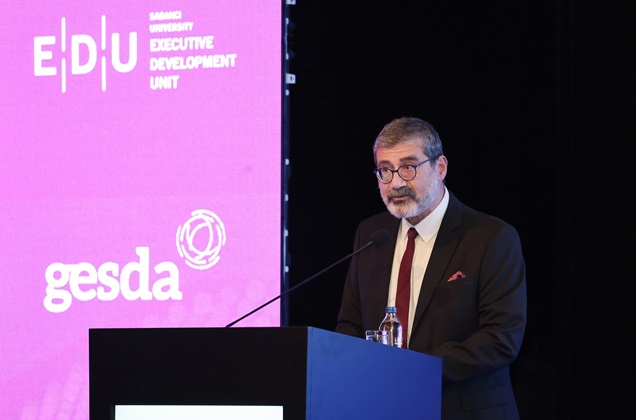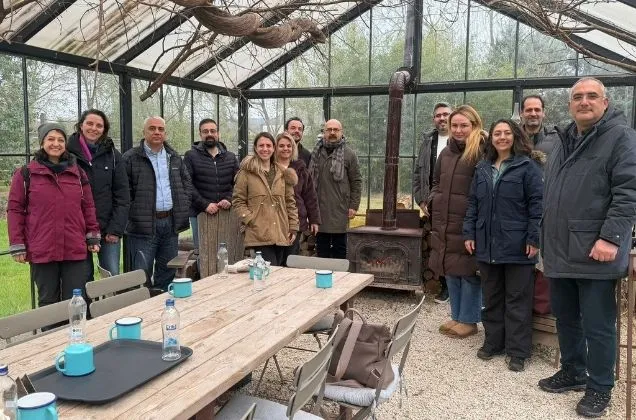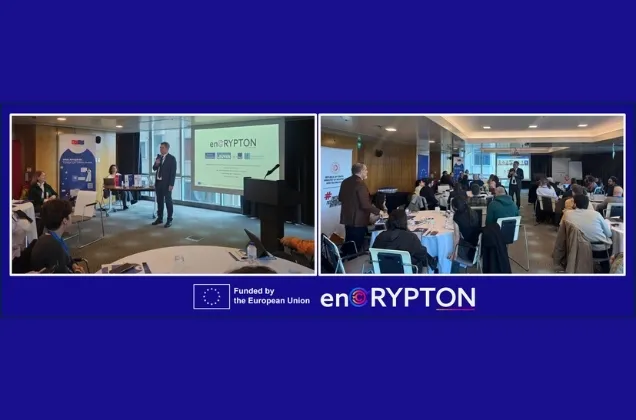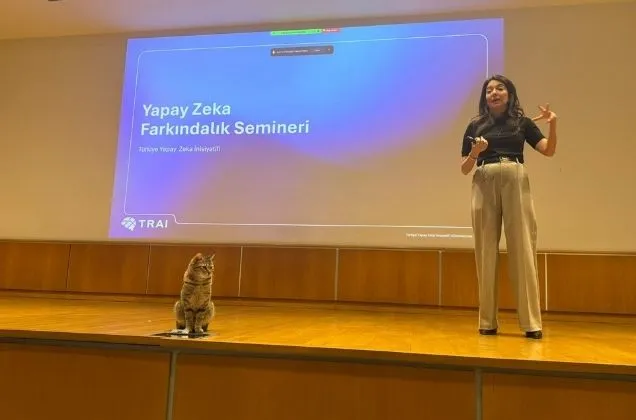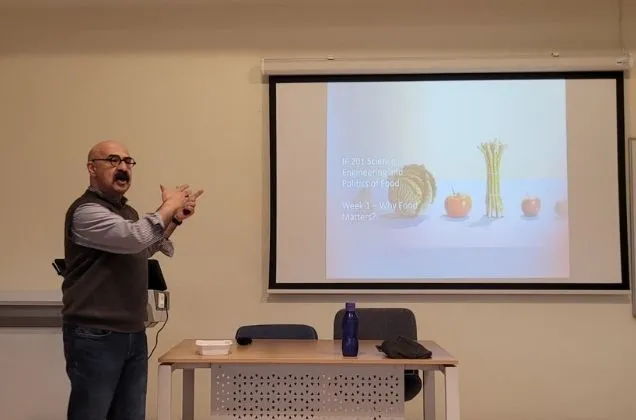22/10/2025
The Anticipatory Leadership Summit, organized in collaboration with Sabancı University and the Geneva Science and Diplomacy Anticipator (GESDA), has begun. Held in Istanbul for the first time, the summit explores the future of leadership informed by science.
Sabanci University is hosting the GESDA Anticipatory Leadership Summit, with the participation of distinguished contributors such as Güler Sabancı, Founding Chair of the Board of Trustees of Sabancı University, Peter Brabeck-Letmathe, GESDA Chairman of Board, former Italian Prime Minister and Dean of the IE School of Politics, Economics, and Global Affairs, Dr. Enrico Letta, Ambassador of Switzerland, Guillaume Scheurer, and GESDA Secretary General Stéphane Decoutère. The summit, held in collaboration with the Geneva Science and Diplomacy Anticipator (GESDA), kicked off on October 20th and concludes on October 23rd. Scientists, policymakers, and CEOs are discussing the scientific breakthroughs that will shape the next 5, 10, and 25 years. Designed around the Future Map (Radar) developed by GESDA, the summit brings together international experts in fields that will shape the future world, such as quantum technologies, AI-enabled manufacturing, chip technologies, biodiversity, energy transition, science diplomacy, and technology management.
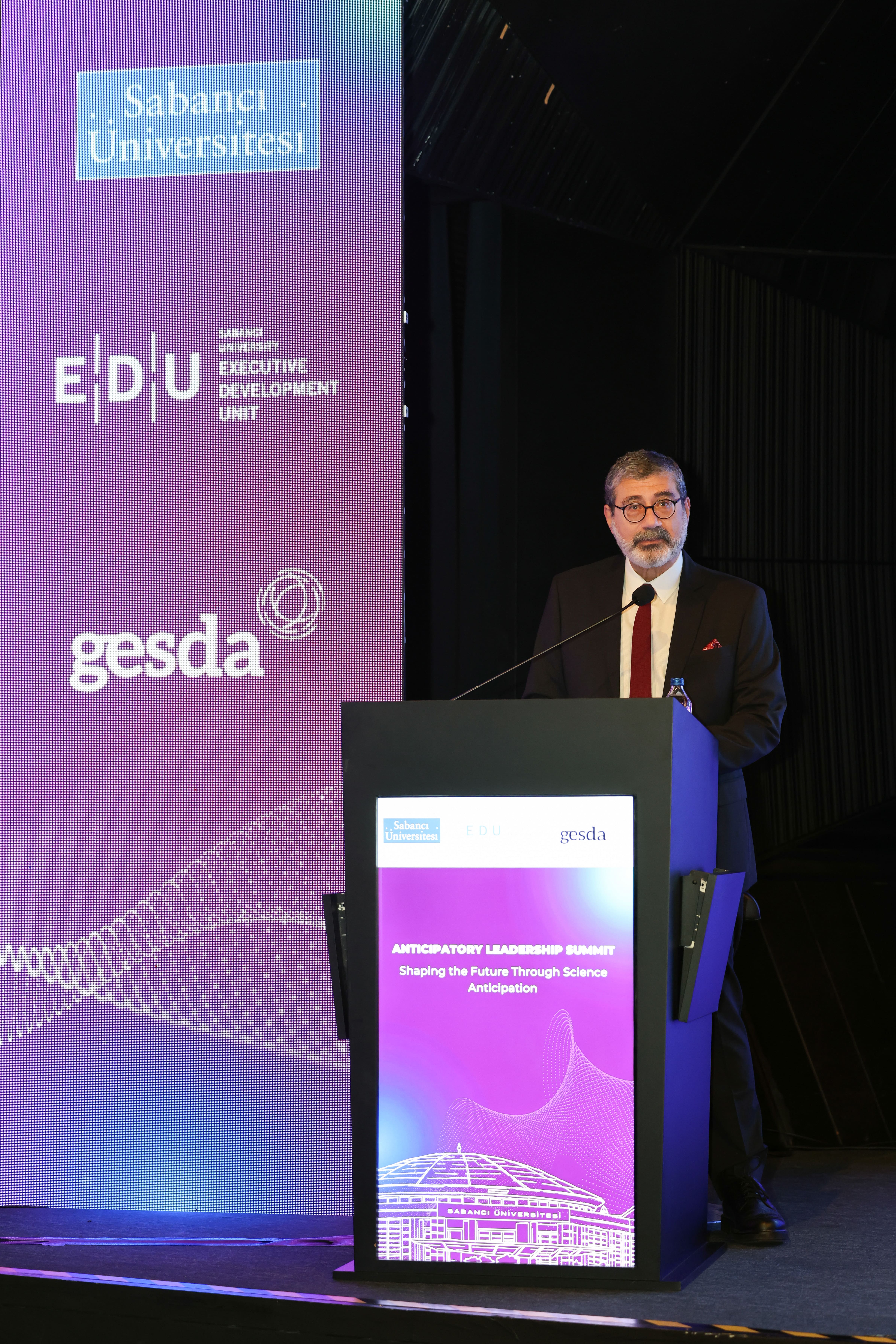
Speaking at the "Common Solutions to Global Challenges: Science Diplomacy" session held on the first day of the summit, Sabancı University President Prof. Dr. Yusuf Leblebici said, "We are proud to be one of the five pilot centers of this global curriculum, which is being implemented simultaneously in different regions of the world." Leblebici continued, "Sabancı University, with its interdisciplinary approach to education, research strength, and the global success of its graduates, is among the world's leading universities. Our university has proven itself as one of the leading higher education institutions in Türkiye, the region, and the world. Graduates of Sabancı University, educated in a variety of disciplines ranging from computer science and engineering to psychology, international relations to materials science and nanotechnology, and business to economics, are highly sought after in the private sector, various industries, and academia. More than 32% of our graduates are currently pursuing successful careers abroad at leading companies, universities, and research institutes worldwide. With this background and motivation, we embark on this exciting task of launching a unique curriculum."
"With the compass of science, we can be as prepared for the future as we can."
Yusuf Leblebici, noting that while scientific and technological advancements are advancing at an unprecedented pace, even keeping up with the latest developments has become difficult, said, "However, leadership is possible not only by following but also by anticipating progress in science and technology. Leadership in the private sector, leadership in policymaking, leadership in diplomacy, leadership in industry, education, and research all depend on our ability to anticipate and prepare for the future five, 10, and 25 years from now. This program is designed to offer a glimpse of the latest developments in selected fields and equip future leaders with the understanding to foresee the future and anticipate progress. We can never have complete certainty about what the future will bring, but by using the compass of science, we can be as prepared as we can."
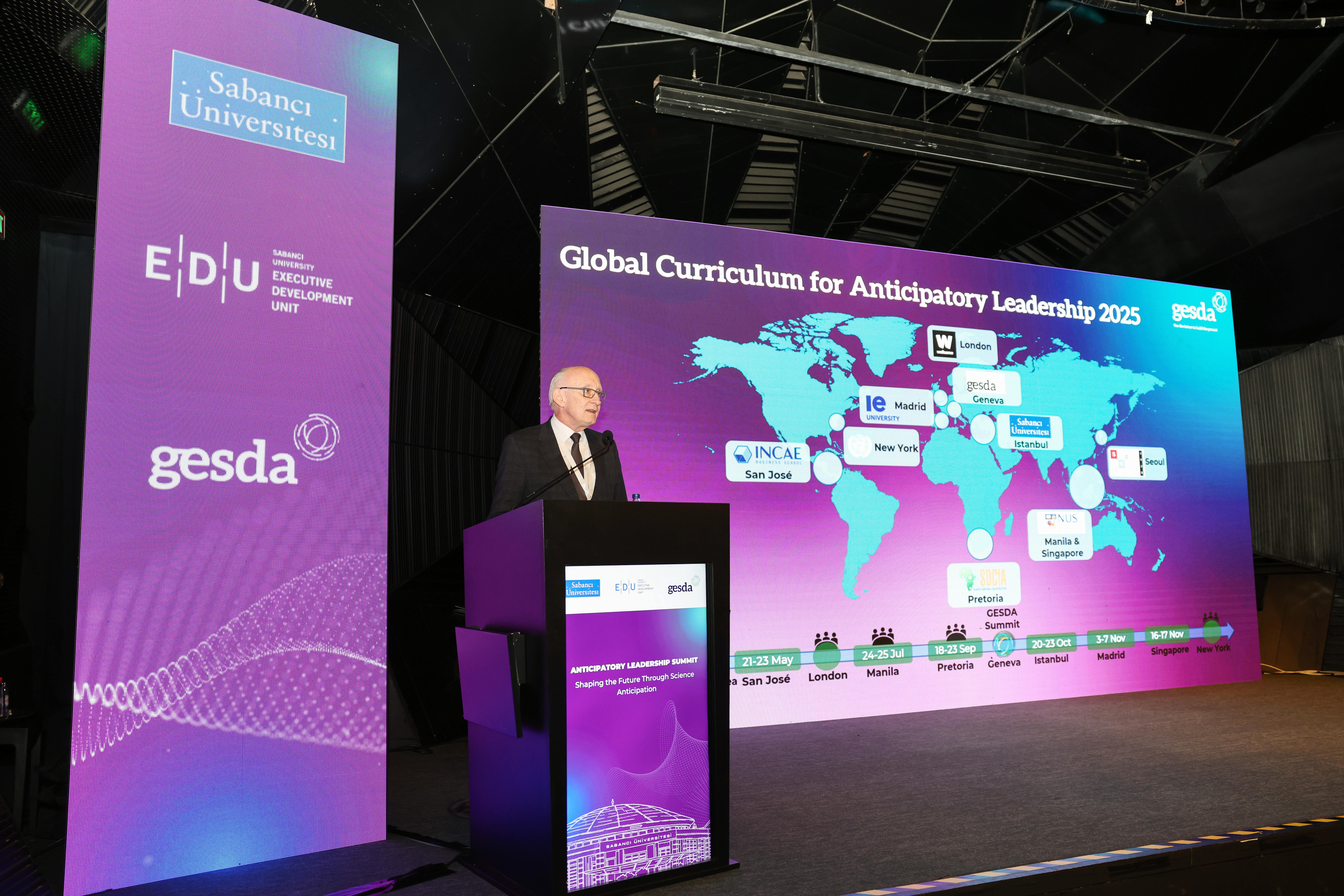
"We must expand the circle of beneficiaries of scientific and technological advances."
In his speech at the summit, GESDA Secretary General Stéphane Decoutère stated: “GESDA was established at the initiative of the Swiss government and Geneva authorities to keep pace with the dizzying pace of science and technology. Our goal is not only to anticipate the technological challenges of the future, but also to develop concrete projects that can transform these challenges into opportunities. We believe in expanding the circle of beneficiaries of scientific and technological advances; that's why we work with all stakeholders, from academia to the private sector, from public institutions to citizens. This approach is part of GESDA's DNA. Our goal is to view science not merely as a field of discovery, but as a solution tool integrated with diplomacy, security, and economic impact. We aim to ensure that future innovations in critical areas such as artificial intelligence, energy, biotechnology, and sustainability are accessible to as many people as possible.”
Sabancı University is shaping the future leadership vision!
The Anticipatory Leadership Summit, held in Istanbul for the first time this year, is an extension of GESDA's global "Global Curriculum for Anticipatory Leadership (GCAL)" program. As one of GCAL's five official pilot centers, Sabancı University is among the institutions shaping the future leadership vision. The summit aims to transform developments at the forefront of science into the strategic vision of the business world. Participants will have the opportunity to experience the scientific foresight, strategic vision, and diplomatic cooperation perspectives that constitute the fundamental components of visionary leadership. The summit encourages reflection on the strategic advantage and societal impact of emerging science and technologies, while also strengthening leaders' science-based decision-making skills. Fueled by GESDA's commitment to "creating a better world through science," this initiative also reinforces Sabancı University's strong position in the international scientific community.
Preparing societies for a future transformed by science and technology
Founded by the Swiss Federal Government and the Canton of Geneva and supported by Wellcome, GESDA is recognized as one of the world's most innovative platforms promoting anticipatory science, diplomacy, and global cooperation. Its mission is to prepare societies for a future transformed by science and technology. By bringing together world-class universities, business schools, international organizations, and diplomatic leaders, GESDA aims to empower decision-makers from diverse sectors to anticipate future scientific breakthroughs and, informed by these insights, take strategic, decisive action. Sabancı University was selected as one of five official pilot centers for the Global Curriculum for Anticipatory Leadership Education (GCAL) initiative, launched as part of the GESDA Summit on October 11, 2024. The program is considered a significant step toward preparing global leaders for the rapid transformations shaped by science and technology.
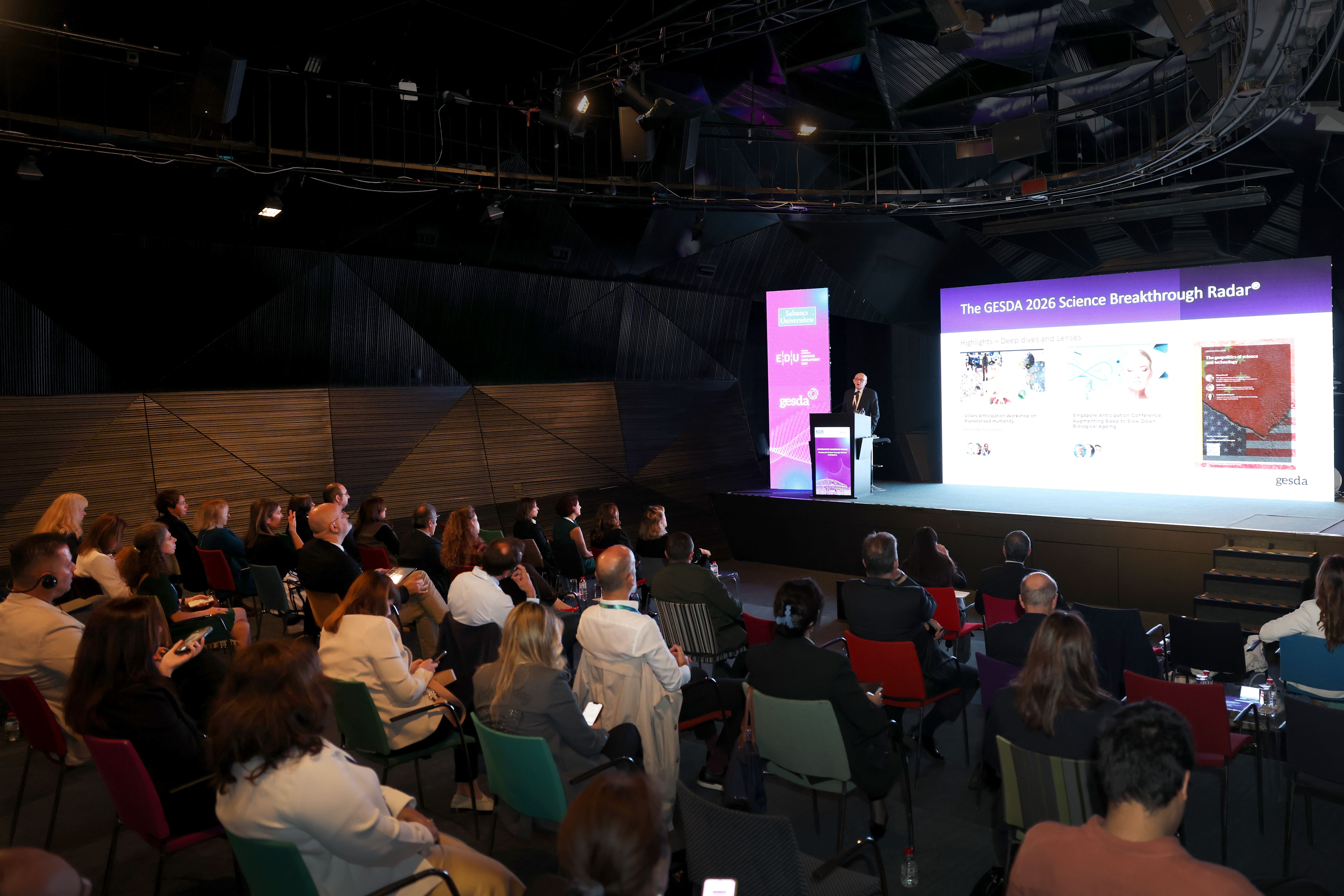
Topics that will shape the future will be discussed.
The first day of the summit was held under the theme "Fundamental Knowledge." The first day featured topics such as "Science Diplomacy: The Importance and Necessity of Anticipation in Global Policy and Governance," "State of the Day: Multiple Crises and Opportunities," "The Age of (Mis)information: The Post-Truth Era and the Evolution of Knowledge," "Common Solutions to Global Challenges: Science Diplomacy," and "Science Beyond Borders: The Power of Physics, Engineering, and Biomedicine to Reshape Global Challenges."
The second day of the summit, themed "Scientific Anticipation," will address topics such as "Navigating the Future," "From Waste to Value: Strengthening the Circular Economy for Sustainable Materials and Societal Impact," "Future Industrial Technologies," "The Artificial Intelligence Horizon: Opportunities, Risks, and the Power of Collaboration," and "Privacy and Cybersecurity."
The third day, themed "The Future of People, Society, and the Planet," will focus on "Future Energy," "Food Security and Biodiversity: Nutrition, Risk, and Responsibility in a Changing World," "The Second Quantum Revolution: Transforming Technology and Life," "Real-Time Systems for Quantum Control and Feedback," and "Semiconductor Chip Technologies." The fourth day of the summit will be themed "Social Impact and Leadership." Information will be provided on "Anticipatory Leadership from Türkiye's Past," "Inspiring Leaders," and "The Curriculum Paradox: Preparing Students for the Unexpected."
